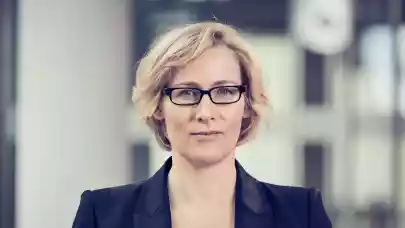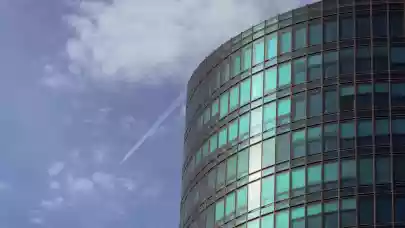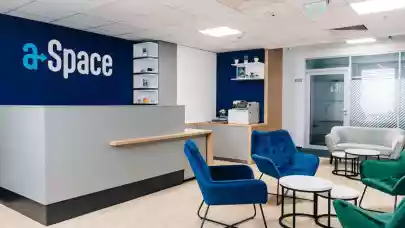
Susanne Steinböck, Group Head of Corporate Communications and Sustainability at CA Immo talked to Property Forum about the current state of affairs in the European office market, its attractiveness and energy-related challenges it has to face in the nearest future.
Office markets in the CEE countries appear to have already recovered from the effects of the pandemic. Until a year ago, rather pessimistic attitudes prevailed on this topic...
Yes, we also saw positive impulses on the letting side in recent months and robust demand for Class-A offices in central locations with a positive trend. Tenants are now making rental decisions that they postponed during the pandemic. And more and more companies are bringing their employees back to the office.
Hybrid working model from a point of view of an office manager and developer: love it or hate it?
Hybrid working is the "new normal". People want to keep the flexibility they gained during the pandemic and continue working in the office and from home. And yet many studies and also the experiences with our tenants indicate that the office is indispensable for creative teamwork, productivity as well as for cohesion within the company and identification with the employer.
Companies may therefore need fewer permanent workplaces in the future, but not necessarily less office space. At the same time, the demands on the quality of office space are increasing: offices must be better than home and meet higher ESG requirements. In our view, the future of the office therefore clearly lies in the premium segment. The best products on the market that meet these requirements will remain competitive.

Susanne Steinböck
Head of Corporate Communications & Sustainability
CA Immo
In your opinion, could the conflict in Ukraine cool down the interest in office real estate in this part of Europe among Western investment funds?
Several factors are currently at play here: high inflation, increasing interest rates and thus higher financing costs, energy crisis and war in Ukraine. As a result, real estate investors are getting more risk-averse and liquidity is key. We already see less property transaction activity and very selective and targeted buyers and sellers as a consequence of the current overall market conditions.
A similar situation and sentiment are evident in the capital markets. Currently listed European real estate companies are trading with high average discounts to net asset value, which shows investors´ concerns regarding the industry. Good fundamentals, a high-quality portfolio and a stable business model are more important than ever.
Which office locations in CEE countries do you currently consider to be the most promising?
We currently see established markets like Warsaw and Prague to be the most promising locations in CEE, with German metropolises like Berlin, Munich and Frankfurt as regional complements.
The war-induced increase in energy prices will certainly cause developers to place a stronger emphasis on the energy efficiency of buildings. Could this mean that in the coming years only the letter E will remain from the abbreviation ESG?
The Environmental issue is the most burning one, so the current focus is clearly on energy efficiency, the fight against climate change and all related measures. Still, as a listed company, governance issues have always been and continue to be at the top of our agenda, these issues are important to our stakeholders, especially in the capital markets environment. Among other things, we are a signatory of the UN Global Compact, the world's largest and most important initiative for responsible corporate governance. The central element of the UN Global Compact is 10 universal principles, which include topics such as labour standards, human rights, environmental protection and anti-corruption, as well as the support of the 17 Sustainable Development Goals (SDGs) of the United Nations. Social aspects such as supply chain responsibility, worker protection, diversity, health and safety are also important components of our ESG commitment.
The model of the 'greenhouse' - an office building with glass facades, the interior of which must be continuously air-conditioned - is still very much embedded in the world's architecture, which, in the context of the impending climate crisis, does not inspire optimism. What do you think can replace it?
Architecture, tenant expectations and the definition of "state of the art" are changing. For example, we are currently seeing a trend away from floor-to-ceiling windows that cannot be opened or can only be opened partially, toward balustrades that fit into the overall design attractively and functionally. Building architecture must harmonise energy efficiency, functionality, tenant comfort and modern design. In addition, measures such as external sun protection and the use of innovative materials to reduce heat input and generate energy directly on the building can make a significant difference.



